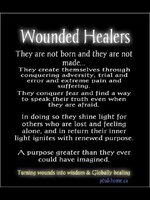I listened to a podcast yesterday and the author being interviewed was very interesting. One of his comments stuck with me. He said that when he was younger he wanted to be a writer but didn't have anything to write about, so he decided to go travelling. But while he was away, he realised that he was "a boring person in an interesting place". He still had no ideas.
I was thinking about this for a while afterwards. 'An interesting place' doesn't have to be a geographical. It can be a mental place. When I was young, I wanted to be a writer too. But I had nothing to say because I was so inexperienced in life. Eventually, in my late twenties, I had a go at a children's fantasy, which sparked my confidence when I actually managed to complete it. But realistic fiction for adults eluded me until after life beat me over the head with a traumatic experience which changed my life. For a long time, I thought that this experience was all negative. Now I realise that such experiences can open doors in your mind and give you the ability to see yourself and the world differently. I think I write more deeply because of it.
Do you have similar thoughts or a totally different angle on this subject? I'd be interested to hear your answers.
Claire xx
I was thinking about this for a while afterwards. 'An interesting place' doesn't have to be a geographical. It can be a mental place. When I was young, I wanted to be a writer too. But I had nothing to say because I was so inexperienced in life. Eventually, in my late twenties, I had a go at a children's fantasy, which sparked my confidence when I actually managed to complete it. But realistic fiction for adults eluded me until after life beat me over the head with a traumatic experience which changed my life. For a long time, I thought that this experience was all negative. Now I realise that such experiences can open doors in your mind and give you the ability to see yourself and the world differently. I think I write more deeply because of it.
Do you have similar thoughts or a totally different angle on this subject? I'd be interested to hear your answers.
Claire xx

